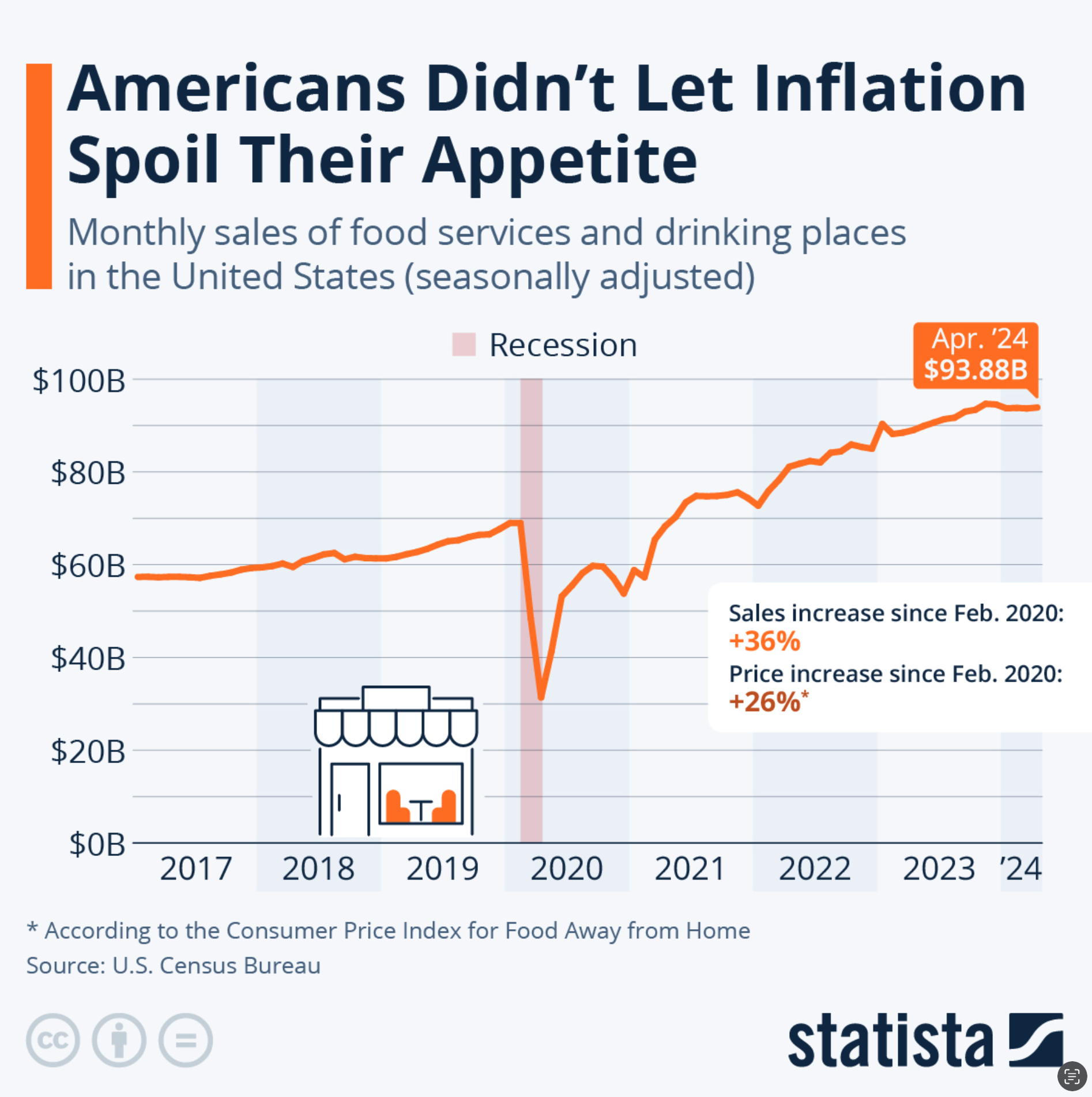This week we are going to talk about simplifying food. While food can be a delight, it is also a source of problems for many people. There are various reasons, many related to the effect eating has on our brains, one that can be similar to addiction. There is a direct emotional connection between food and how we feel, one that can confound our ability to eat properly, especially when stressed, in a hurry, etc.
Another problem is the rising proportion of meals eaten at restaurants and elsewhere. Cost aside, studies show we are terrible at estimating how many calories and what ingredients are in what we eat. Restaurants don't make that easy, so we are often forced to guess, which we do poorly, getting both low- and high-calorie foods' contents wrong.

Further complicating things is that nutrition science is very messy, with many equivocal and conflicting findings. This can leave people uncertain where to turn, obsessing about things—non-fat! low carb! high protein!—rather than simplifying and moving on. There is, too often, yet another magic food or ingredient that people think they must have, usually based on shifting and equivocal evidence.
Food needs to be simplified. The book Fat Nation, which we highly recommend, on the history of obesity in America, has a terrific section on why diets fail. Among the reasons is that we live in an obesogenic environment, forced to make choices among bad options, and it becomes exhausting having to continually exercise willpower when faced with so many unhealthy food choices. While it is important to eliminate those bad foods, it is also important to reduce the number of choices you need to make, thus reducing the amount of effort required to eat properly.
Last week we talked about an app we like that helps: MacroFactor. This week we are going to talk about an approach we like that helps. We think people should consider applying Steve Jobs's clothes approach to many means: Just eat the same simple thing. Rather than constantly looking for novelty—What's for dinner? What should I have next? Where should we eat?—consider turning eating back into fuelling and a social ritual.
I (Paul) have the same meals most days. Steel-cut oatmeal with blueberries, Greek yogurt, and cinnamon for breakfast; a protein smoothie for lunch, and something simple for dinner. Two of my three meals on any given day are generally the same ones. I take all the decision-making out of meals, insofar as possible, and avoid having to spend any more time thinking about it than I have to—except for the social aspect, which remains a delight.
With this in mind, here is my favorite smoothie recipe. It combines fiber, antioxidants, and protein without added sugars, helping me meet my daily targets.
Ingredients:
1 cup milk (dairy or plant-based)
1/2 cup Greek yogurt
1 frozen banana
1 cups berries
1 tablespoon almond butter (or other nut butter)
2 scoops vanilla protein powder
1 tsp cinnamon powder
1 tsp creatine
Instructions:
- Add all ingredients to a high-powered blender in the order listed.
- Blend on low speed and gradually increase to high until smooth and creamy with no lumps.
- Pour into glasses and serve immediately.
Tips:
- Use frozen banana and berries for a thick, frosty texture without watering it down with ice. But ice is fine too if you don't want to freeze bananas.
- Greek yogurt (I like the Costco kind) and no-sugar nut butter add creaminess and extra protein.
- Adjust milk amount to reach the desired consistency - use less for a thicker smoothie.
- Add greens like spinach for extra nutrients without affecting the flavor much.
- Use a high-quality protein powder - whey, plant-based, or collagen powder all work.
Have a smoothie recipe you like more than this one? Send it over. But don't let food get in the way of making simplifying eating a priority in 2024.
Back next weekend with more ideas for simplifying health and fitness.
Further reading:
- Can People Accurately Estimate the Calories in Food Images? An Optimised Set of Low- and High- Calorie Images from the food-pics database - ScienceDirect https://www.sciencedirect.com/science/article/abs/pii/S0195666319300200?dgcid=api_sd_search-api-endpoint
- Fat Nation: A History of Obesity in America: Engel, Jonathan: 9781538117743: Amazon.com: Books



![[Video] Aging and the Limits of Human Performance](https://images.unsplash.com/photo-1519505907962-0a6cb0167c73?crop=entropy&cs=tinysrgb&fit=max&fm=jpg&ixid=M3wxMTc3M3wwfDF8c2VhcmNofDF8fHJvd2luZyUyMGd5bXxlbnwwfHx8fDE3NDA3NjEwODR8MA&ixlib=rb-4.0.3&q=80&w=100)

